News & Blogs
Okayama's Current Breakfast Scene
Exploring Taiwanese Vegetarianism(台灣素食)
The Spectrum of Vegetarian Diets
The Prevalence of Vegetarianism in Taiwan
Choosing Taiwanese Vegetarianism and the Role of Mock Meats
Understanding the Popularity of Taiwanese Vegetarianism
Team TREHA® members possess a profound curiosity about culinary cultures around the world. In this edition, a Taiwanese member takes you to a vegetarian paradise. As you read on, the article will unveil the previously untapped connection between the culinary secret, TREHA®, and Taiwanese-style vegetarian cuisine.
Exploring Key Questions from Okayama's Breakfast Scene and Recent Food Trends
In many Japanese cities, the area around the train station, which serves the Shinkansen (bullet train), is the city center, and Okayama Station is no exception. However, from my perspective, the variety of breakfast options available in the early morning is too limited. My friends might tilt their heads in wonder at this complaint, but this unique difference in opinion might be related to my upbringing in Taiwan, known for its colorful breakfast culture. This insight inspired this article in the past.
A few years ago, I found myself questioning whether the current trend in plant-based foods could truly be considered a new concept, a reflection perhaps prompted by my background. I'm deeply familiar with what is known as "Taiwanese Vegetarianism (台灣素食)," a distinctive form of vegetarian culture. For some, the exploration of vegetarianism may have been a mere curiosity, while for others, like me, it was a part of our everyday lives, deeply ingrained in our culture. Perhaps you, too, have encountered this unique aspect of Taiwanese culture during a visit to Taiwan.
In this article, I will provide a detailed introduction to "Taiwanese Vegetarianism," exploring its definition and discussing why vegetarian culture has become so widespread in Taiwan.
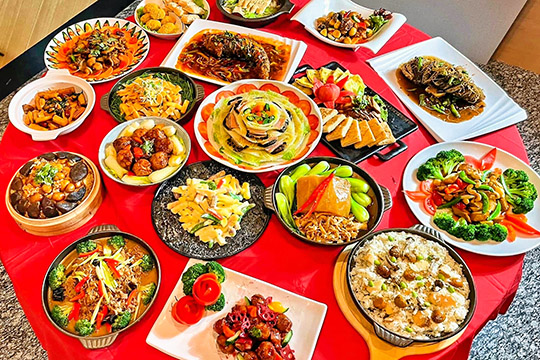
Vegetarianism Sustained by Unique Environment and Culinary Culture
My homeland, Taiwan, is located in the Western Pacific between Japan and the Philippines. The Tropic of Cancer, roughly at 23°N, passes through the central southern part of the main island, with an average temperature of 22 °C (72 °F). Over half of the island’s total area is covered with forested mountains. European sailors, who likely felt a sense of relief at sighting land after a long journey, are believed to have named it “Ilha Formosa,” or beautiful island. Today, when I fly home, I, too, see the lush greenery of my homeland from the air and think it is truly beautiful.
As I mentioned in a previous article about Taiwanese breakfasts, Taiwan is a melting pot of diverse ethnic groups and their culinary cultures. This is set against a warm climate year-round and plentiful rainfall, making Taiwan a place where fresh vegetables and fruits can be grown and sourced throughout the year. This abundance of fresh ingredients is reflected in cooking methods and flavors that emphasize their quality.
Taiwanese food culture has been heavily influenced by the culinary traditions of nearby mainland China and Japan. In recent years, the increase in Southeast Asian immigrants has further diversified and evolved the culinary landscape, integrating various styles.
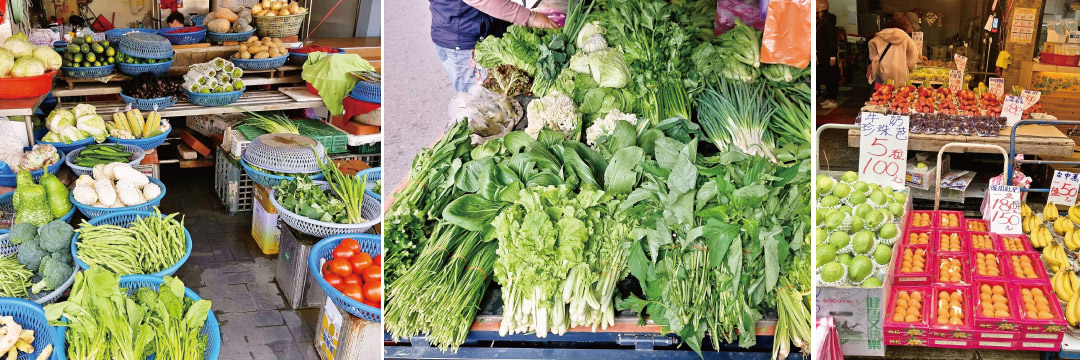
Embracing Diversity in Vegetarian Diet Choices
Taiwan ranks third globally in terms of vegetarian population size, making vegetarianism a common lifestyle choice. According to data published by World of Statistics in 2023, between 13% to 14% of Taiwan's population are vegetarians, which amounts to over 3 million people.
Based on a survey I conducted among 58 acquaintances in Taiwan, the reasons people choose a vegetarian diet are mainly divided into religious and non-religious categories. Non-religious reasons include a desire to enjoy the taste of vegetables, and to ensure adequate intake of fiber and nutrients. There is also a spirit of equality in sharing meals with older acquaintances who practice vegetarianism and vegetarian friends.
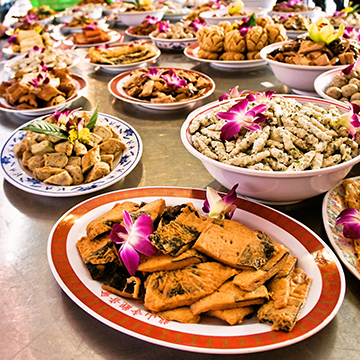
The term “Taiwanese Vegetarianism” encompasses a variety of sub-categories. Below is a table to illustrate the commonly recognized types based on my understanding for readers’ reference. Apart from vegan, the other five types are specified by Taiwanese food labeling regulations, which help consumers choose the option that best fits their circumstances.
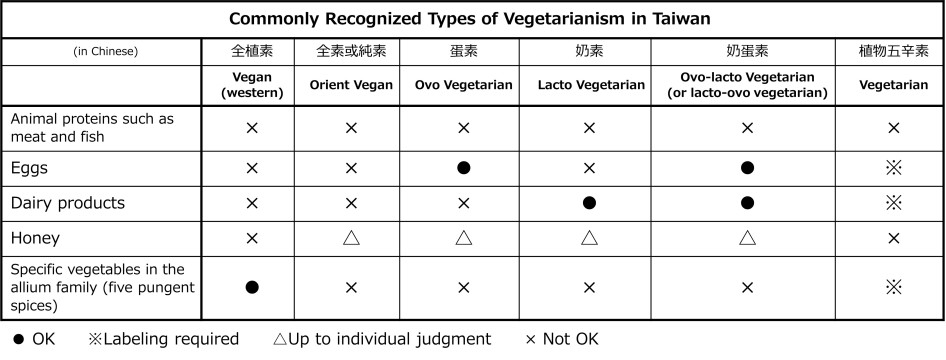
Reference: Regulations Governing the Labeling of Packaged Vegetarian Foods (Taiwan Food and Drug Administration)
Vegetarianism: A Natural Part of Everyday Life in Taiwan
In Taiwan, the labeling of processed foods has been well-established, making it easier for individuals to select products that align with their circumstances and philosophy. In restaurants, menus typically offer one or two vegetarian options as standard. Even if a vegetarian option is not available, most places are flexible and willing to customize dishes upon request (refer to the article on Taiwanese breakfasts). The bento boxes sold at train stations for consumption on trains—a cultural import from Japan—naturally include vegetarian options as well.
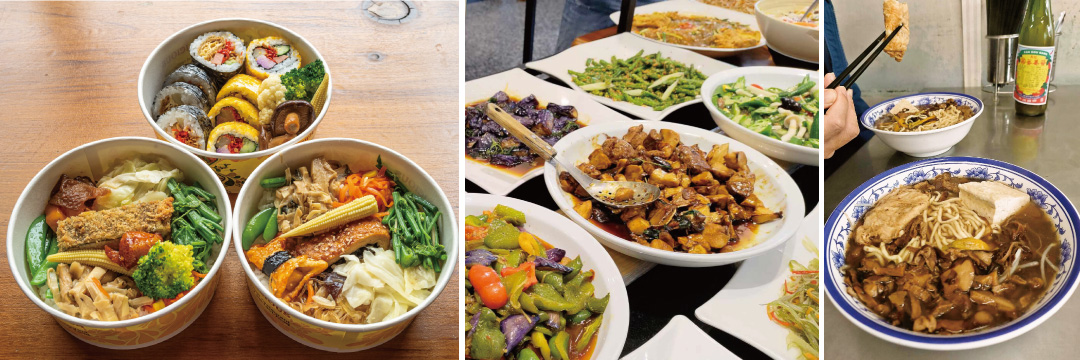
Many restaurants and eateries display the swastika symbol or the Chinese character "素”, signifying vegetarian specialties, on their signage at various street corners. These establishments include those recommended by the Michelin Guide, offering a high-end dining experience.
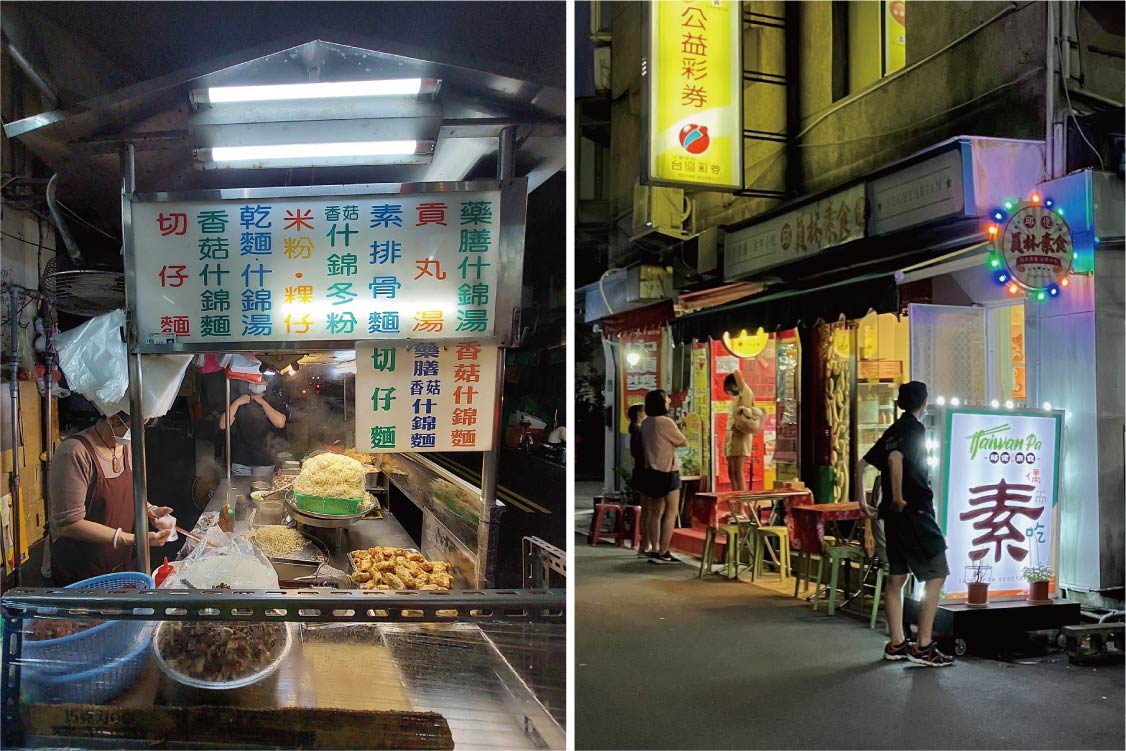
Mock Meats and the Hallmarks of Taiwanese Vegetarian Cuisine
Plant-based foods have recently gained recognition, but in Taiwan, the concept has long existed as “mock meat”, largely influenced by religious beliefs. In Buddhism, taking life is taboo, leading to the use of creatively cooked vegetables as “faux” offerings instead of actual animals. Faux meats were particularly developed between the 10th and 13th centuries, primarily catering to Buddhist pilgrims and visitors to monasteries. This innovation may have started as a way to help those accustomed to meat transition to a vegetarian diet.
For example, in my experience, fried shiitake mushroom stems have a texture reminiscent of goat meat. Other innovations include using konjac to mimic squid sashimi, representing abalone with mushrooms, and recreating Japanese eel kabayaki (baked eel) with tofu. Additionally, the texture of defrosted frozen tofu is cleverly used to replicate dishes like fried chicken, among countless other creative applications.
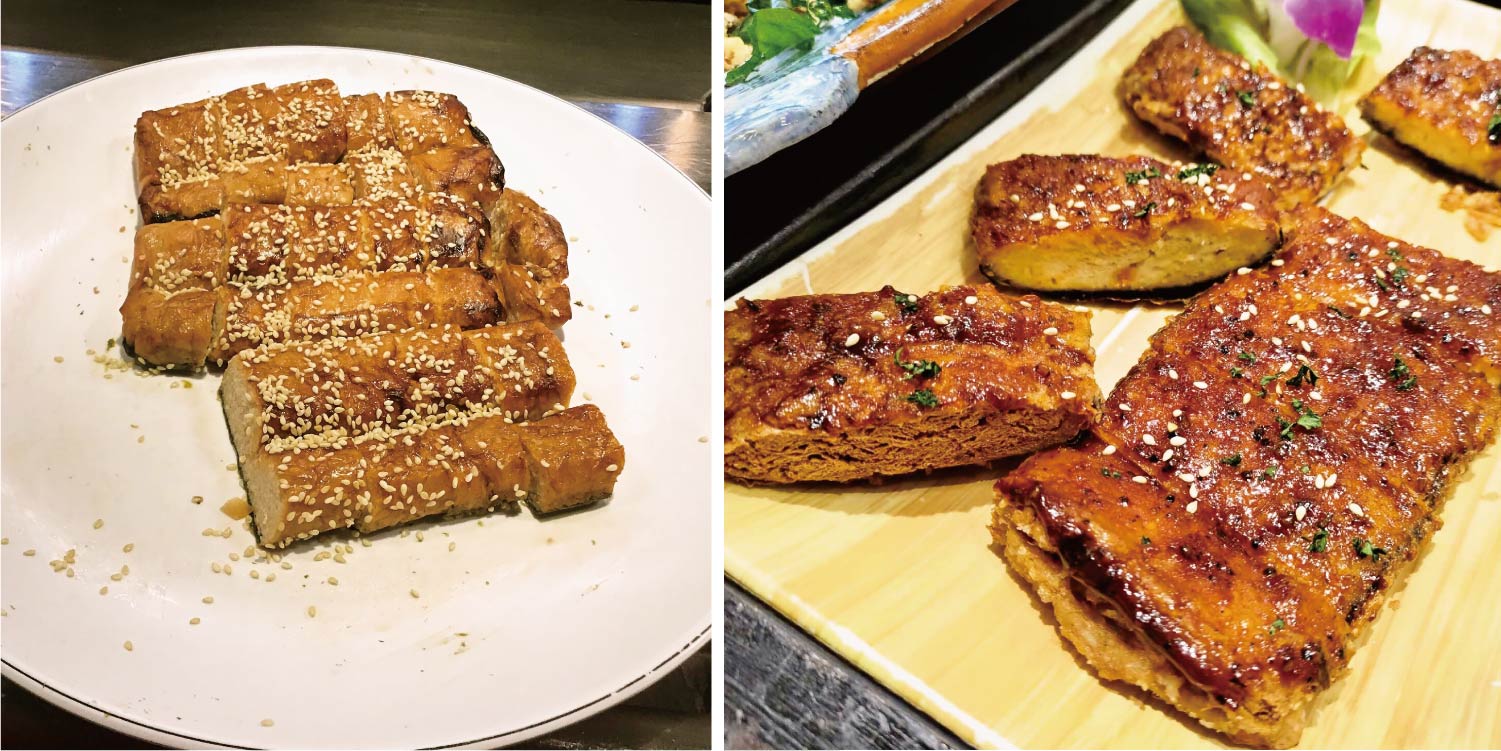
Taiwanese vegetarian cuisine reflects extensive experimentation, maximizing the texture and flavor characteristics of ingredients. Concurrently, Taiwan has been at the forefront of developing plant-based meats since the 1990s. These innovations have achieved a remarkable likeness to the texture and appearance of meat through advanced physical processes, paralleling similar developments in the West.
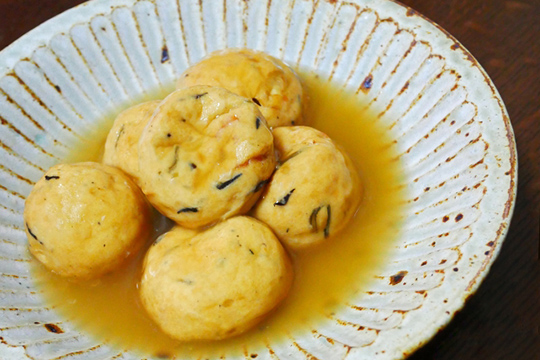
In Japan, you can find a tofu-based meat substitute known as “ganmodoki.” Although it resembles tofu, it is often flavored with dashi (made from fish extracts like bonito), making it unsuitable for vegetarians. Travelers should be cautious.
Given that vegetables can vary in texture based on harvest timing and freshness, consistently replicating the optimal texture in dishes that incorporate traditional Taiwanese vegetarian elements can be challenging. Why not consider using TREHA®, a favorite among culinary professionals in Japan? TREHA® helps preserve the color and flavor of ingredients, making it a valuable addition to Taiwanese vegetarian cooking, which brings out the natural flavors of food. Allow me to introduce some TREHA® -compatible recipes from our website that align with the concept of Taiwanese vegetarian-friendly cuisine; many more are available.
Orient Vegan: Sekihan (steamed rice with red beans), Kudzukiri with Cherry Blossom
Lacto Vegetarian: Matcha Panna Cotta, Ganache
Ovo-lacto Vegetarian: Apple tart with almond cream, Baby Gems with San Francisco Green Goddess Dressing
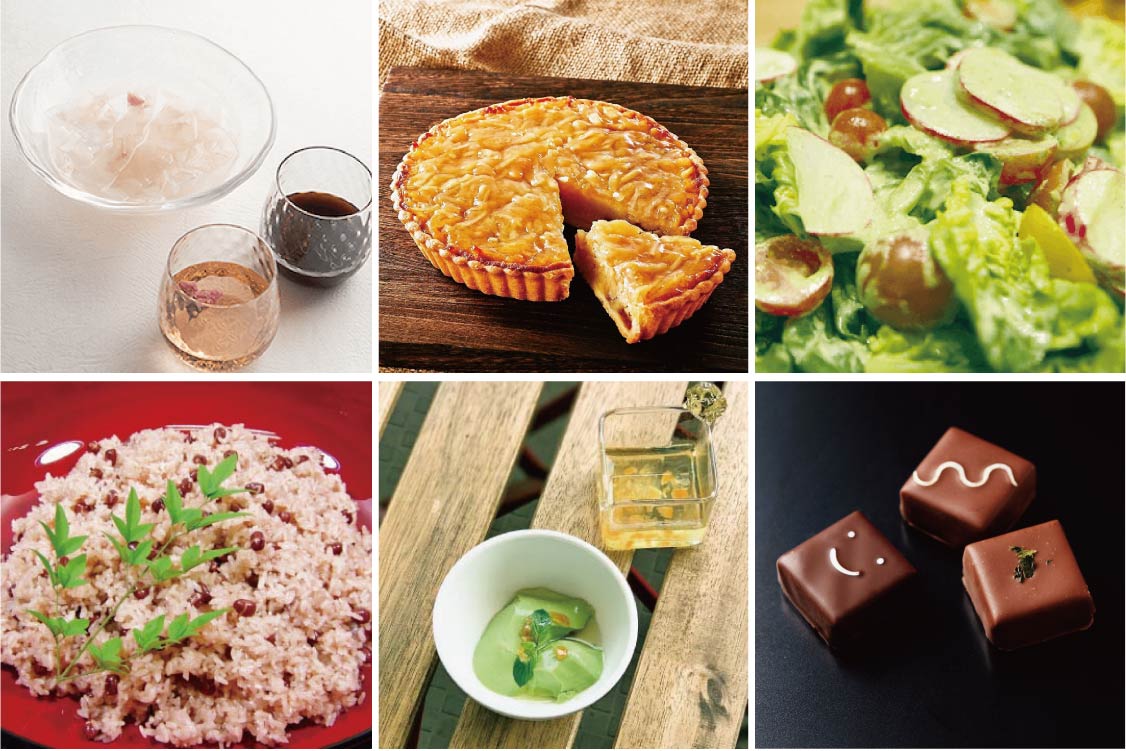
Reflecting on Vegetarianism in Taiwan
In Taiwan, many people choose a vegetarian diet for religious reasons or from environmental conservation and health consciousness perspectives. Those who adhere to Oriental Veganism for religious reasons must not only restrict their ingredients but also cook with specialized utensils to avoid any animal contamination. Others might be closer to being flexitarian. Beyond the previously mentioned types, there are also “pollotarians” and “pescatarians.” Clear labeling requirements tailored to individual circumstances ensure that all vegetarians in Taiwan can enjoy their meals happily.
A unique practice in Taiwan is becoming vegetarian conditionally for specific purposes, such as for passing exams or healing from illness, a practice known as “sacred promise.” This approach differs from Western perspectives. Common practices for those making vows might include abstaining from animal products on the 1st and 15th days of the lunar month or just during morning meals. Many people set their own “personal rules” freely, and this flexibility is widely accepted in Taiwan. My maternal grandmother, for example, has spent years eating only vegetarian meals in the morning, possibly as a spiritual commitment to the safety and happiness of her family. Now, I see it as her commitment to do what she can for her family.
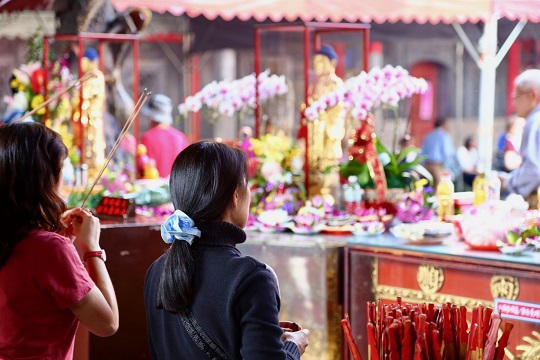
Special thanks to: Jun-How Lin, ” 天喜素食自助餐館 ” , Kai-Ju Huang and Xiu- Zhu Li for sharing lovely photos from Taiwan.
Did you find this blog interesting?
Please share it with your friends in the food service industry.
We regularly update the blog about the food culture of Japan, where TREHA® was discovered for culinary applications.
Click here and send us a message to subscribe.
Or hit us up on Instagram @trehalose_sensei!
You might also be interested in:
A traditionally trained chef with extraordinarily creative minds and talents nicknamed “king of the recipe contests” talks about TREHA®: Exclusive interview with Chef Kunikazu Shimomura of MOTOMACHI SHIMOMURA, a MICHELIN Plate Japanese cuisine restaurant in Yokohama
What are Chef's favorite functions of TREHA®? Exclusive interview with Chef Ryosuke Tamura of Itsuka (慈華), MICHELIN one-star Chinese cuisine restaurant in Tokyo
Super Crispy Candied Fruit Slices (Fruit Chips) <Vegetarian recipe>
Yuzu no Ukishima (Yuzu flavored Japanese steamed cake) <Lacto Vegetarian recipe>


